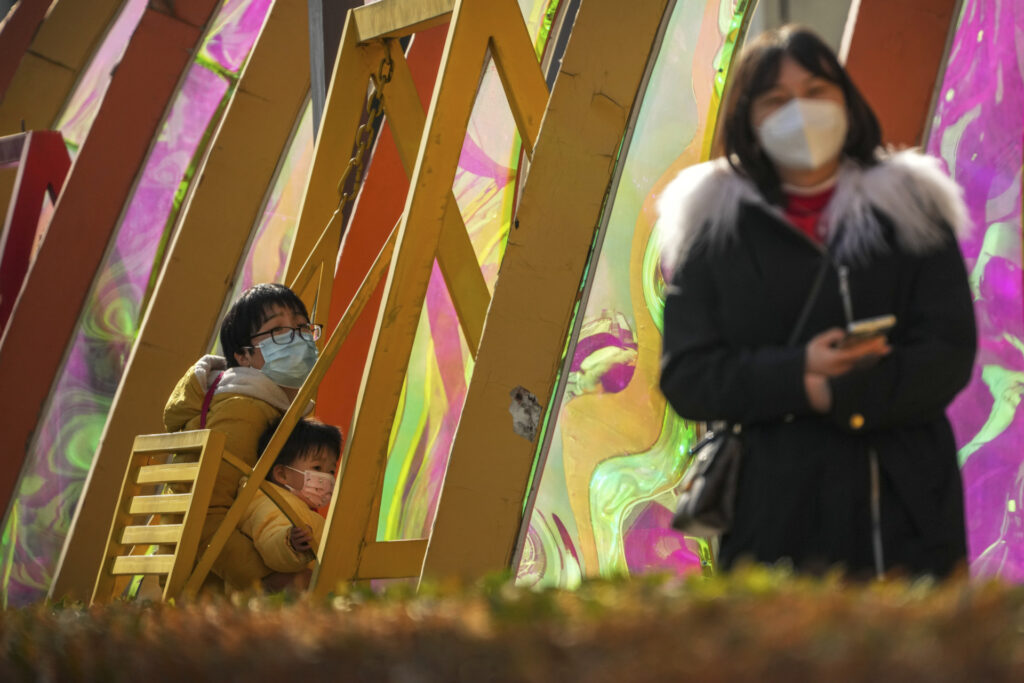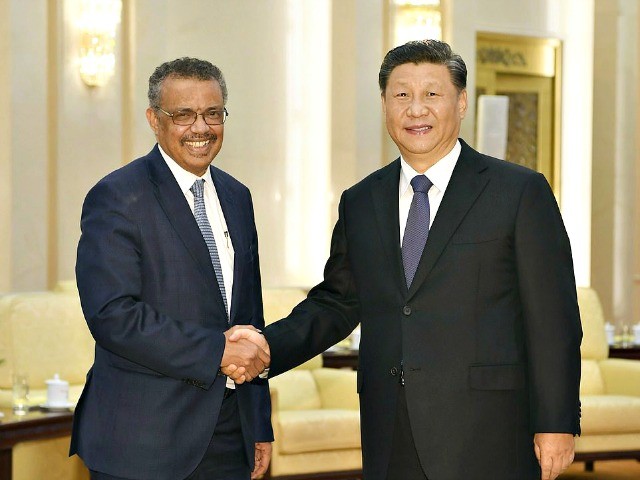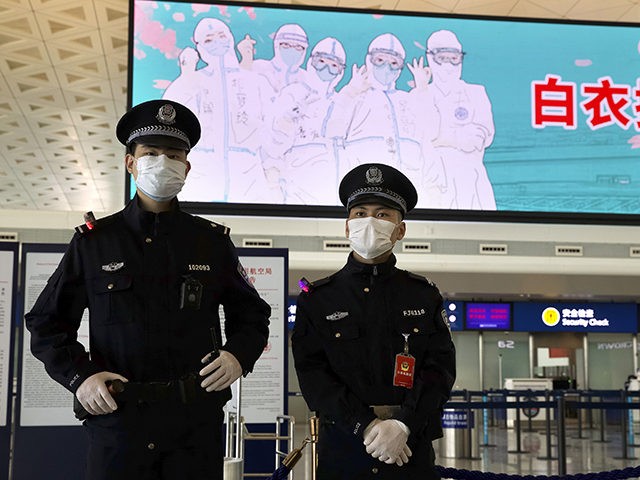A spokesperson for the World Health Organization (W.H.O.) warned the Chinese Communist Party on Tuesday that abruptly ending Chinese coronavirus lockdown restrictions would be “really, really hard,” advising against sudden lockdowns in general because they are difficult to end.
The Chinese government has been implementing a policy it calls “zero-Covid” – which mandates rolling, city-wide lockdowns and imprisoning thousands of people in quarantine camps – since the beginning of the pandemic. The ongoing medical emergency began in late 2019 in central Wuhan, China, where Communist Party officials first began welding people shut in their homes and killing them with starvation or lack of medicine.
“Zero-Covid” has prompted increasingly frequent protests against the Communist Party – largely unheard of since the 1989 Tiananmen Square massacre – that climaxed in a wave of anti-regime protests in the country’s biggest cities in late November. While Chinese citizens had engaged in small acts of dissent consistently for over a year, the last weekend in November saw hundreds take the streets simultaneously in Beijing, Shanghai, Chengdu, Zhengzhou, Guangzhou, and other major urban areas. Many held up blank pieces of paper, representing what the government allows them to legally say in public.
In response, Chinese officials have launched a brutal wave of repression against protesters and defense lawyers who may consider taking up a protester case. They have also, however, simultaneously announced that they would no longer implement “large-scale” lockdowns – reserving the right to isolate residential complexes and neighborhoods, but not entire cities – and that those with asymptomatic or mild Chinese coronavirus infections will no longer be imprisoned in a camp.
NOT AGAIN: China’s southern economic hub of Shenzhen began a coronavirus lockdown on Monday, jeopardizing major foreign business operations and trapping some 24 million residents inside the surrounding province. https://t.co/UByKSqFD3e
— Breitbart News (@BreitbartNews) March 16, 2022
Speaking to reporters on Tuesday, W.H.O. spokeswoman Margaret Harris said that that international agency, which has for years boasted close cooperation with the Chinese Communist Party, had repeatedly advised against prolonged mass house arrest provisions as a wave to prevent disease, in part because returning to normal will take time.
“It’s always very difficult for any country coming out of a situation where you’ve had very, very tight controls,” Harris said, comparing China to Australia, a nation that also used quarantine camps to imprison sick people.
“We’ve always said before: Don’t go into lockdown too easily and too quickly because it’s really, really hard to come out,” she continued. “There are many, many things you have to put in place at community level, at hospital level, at national level in order to maintain that transition.”

A woman and a child wearing face masks ride on a swing outside a reopened shopping mall after authorities started easing some of the anti-virus controls in Beijing, Wednesday, Dec. 7, 2022. China has announced new measures rolling back COVID-19 restrictions, including limiting lockdowns and testing requirements. (AP Photo/Andy Wong)
Harris expressed particular concern that China’s population had not been properly vaccinated. While Beijing has spent the past year and a half promoting coronavirus vaccine products, calling them a “global public good,” many of its vaccine products are of low quality and offer poor protection, according to the Chinese Center for Disease Control (CDC) itself.
Chinese citizens have been hesitant to ingest communist-made vaccination products – particularly after their poor performances in countries such as Chile and Seychelles – and China has not put together a healthcare operation for mass vaccination large enough for its population.
For much of the beginning of the pandemic, the World Health Organization enthusiastically supported China’s pandemic policy, going so far as to share misinformation online from the Chinese government claiming the Chinese coronavirus was not transmissible from person to person, long after evidence later proved the agency had reason to believe it was contagious.
This year, however, W.H.O. Director-General Tedros Adhanom Ghebreyesus began publically pushing back against China’s lockdowns, insisting that the advent of vaccination products made lockdowns a suboptimal way to deal with the disease.

File/Tedros Adhanom, Director General of the World Health Organization, (L) shakes hands with Chinese President Xi Jinping before a meeting at the Great Hall of the People, on January 28, 2020 in Beijing, China. (Photo by Naohiko Hatta – Pool/Getty Images)
“As we all know the virus is evolving, changing its behaviors, becoming more transmissible and with that changing behavior, changing your measures will be very important,” Tedros said in May. “When we talk about the zero COVID strategy, we don’t think that it is sustainable considering the behavior of the virus now and what we anticipate in the future, and especially when we have now a good knowledge, understanding of the virus.”
The Communist Party responded to Tedros’ remarks by calling him irresponsible and censoring photos of the W.H.O. chief on government-run social media sites.
That same month, however, Tedros again insisted that vaccination was a better approach to the pandemic than lockdowns.
“We know the virus better and we have better tools, including vaccines, so that’s why the handling of the virus should actually be different from what we used to do at the start of the pandemic,” Tedros said.
The Communist Party has continued to proclaim to the world that it has “optimized” its “zero-Covid” strategy, allegedly doing away only with “large-scale” mass house arrest and justifying the move by announcing that Chinese scientists discovered this month that the omicron variant of Chinese coronavirus, dominant for most of 2022 worldwide, caused less severe disease than past variants. Scientists around the world – most notably last year in South Africa, the country to first identify the omicron variant – had reached this conclusion and urged public officials to shape their policy around it throughout the year.
The Communist Party ignored those suggestions prior to the protests.
Follow Frances Martel on Facebook and Twitter.

COMMENTS
Please let us know if you're having issues with commenting.